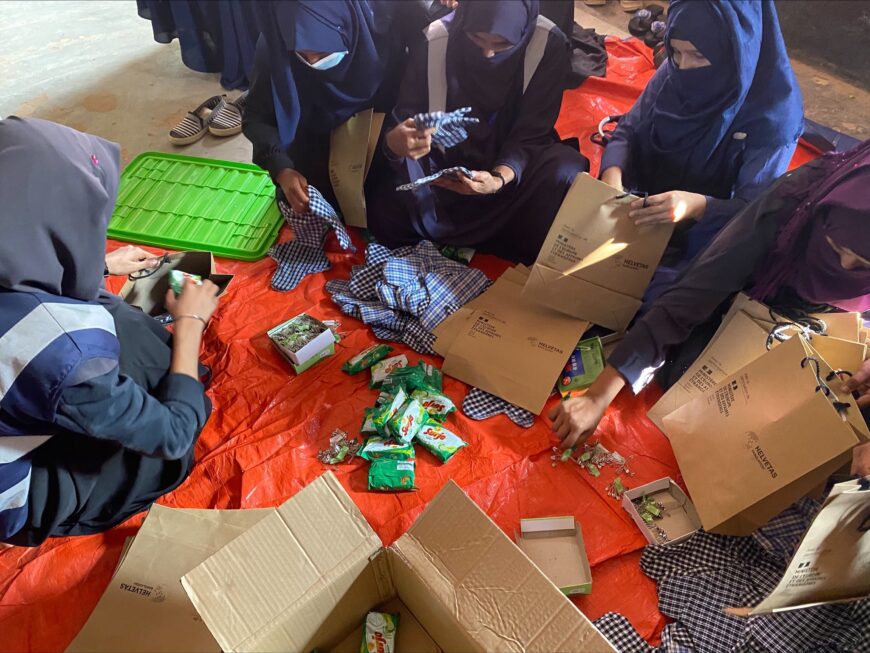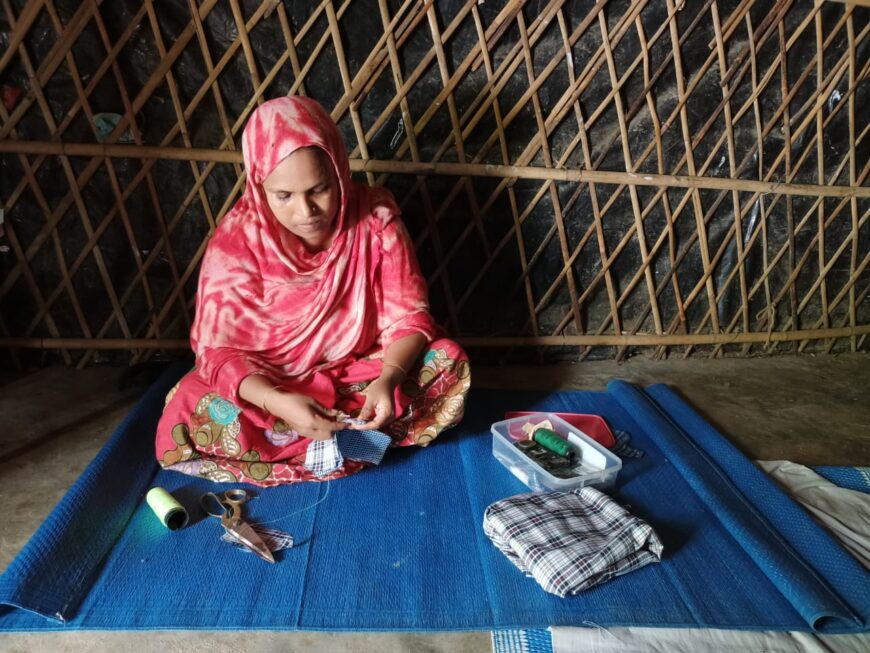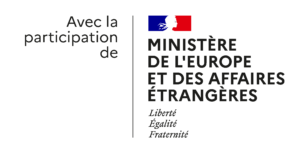Ukhiya, Cox’s Bazar: Sustainable menstrual hygiene for refugee women and girls
As the largest refugee camp in the world, Kutupalong refugee camp in Ukhiya, Cox’s Bazar is overcrowded with over 600,000 inhabitants living in bamboo shelters. Begum, a Rohingya refugee from Myanmar who lives in Kutupalong refugee camp, learned how to make reusable sanitary pads with ACTED's support.
Rohingya refugee crisis, a persecuted minority
Violence in Rakhine State, Myanmar, drove over 700,000 Rohingya people across the border into Cox’s Bazar, Bangladesh, in late 2017. Nearing 5 years on from that influx, approximately 1 million Rohingya refugees reside in the 2 refugee camps in Ukhiya and Teknaf areas of Cox’s Bazar. The political situation in Myanmar has deteriorated since the influx, following a military coup in February 2021 replacing the democratically elected government. Within this context, the safe return of the Rohingya to Myanmar appears unlikely in near future.
Humanitarian response in refugee camps of Cox’s Bazar
ACTED has been implementing humanitarian response and resilience building projects in Bangladesh since 2018 within the scope of Rohingya refugee response, implementing site management support, disaster risk reduction, reforestation, livelihoods, and hygiene promotion projects. In 2021, ACTED started a pilot project in partnership with The Crisis and Support Centre (CDCS) and HELVETAS Swiss Intercooperation. Through this project, ACTED supported the self-reliance of 220 women living in camps through reusable sanitary pad production trainings.
Empowering refugee women through skills building

The participants received training about production of durable and reusable sanitary pads from accessible materials around; aiming to support sustainable menstrual hygiene management for women and girls residing in the camps. They also received incentive payments through cash for work modality, which helped them afford additional needs of their family.

I live with my mother, father, sister, and 10-year-old daughter. In 2017 I, alongside many other Rohingya refugees fleeing persecution of Myanmar’s military; arrived in Kutupalong camp, Bangladesh. During the hostilities, I lost 5 of my brothers, and 2 sisters. Me and other 3 sisters of mine survived only. 2 of them got married, 1 still lives with me and our parents. I am the only working member left in the family. We used to rely entirely on distributions from aid agencies.
I was selected by ACTED to participate in sanitary pad production activity. Previously I did not know how to make sanitary pads but I received training from ACTED and began teaching other women and girls about sanitary pad production.
In our community, majority of the women do not have the money to buy pads. Now that I know how to make pads, I can produce them for myself as well as for other women who need it. ACTED paid us cash for making sanitary pads. I used the money for the medical expenses of my parents and also food and other things we need.
Kutupalong refugee camp in Ukhiya, Cox’s Bazar district of Bangladesh is the largest refugee camp in the world. Approximately 1 million Rohingya refugees from Myanmar are living in the 2 refugee camps in Ukhiya and Teknaf.
Access to menstrual hygiene materials is an everyday challenge for Rohingya women and girls living in refugee camps. While some humanitarian organisations conduct distributions, the materials are usually disposable. Building refugee women’s skills for sanitary pad production allows increased sustainability in menstrual hygiene management.
While Rohingya refugees are provided with basic needs support through ACTED and other humanitarian agencies, they need additional income for supplementary needs such as medical expenses or non-food items. Cash-for-work initiatives are one of the few income sources for Rohingya refugees
